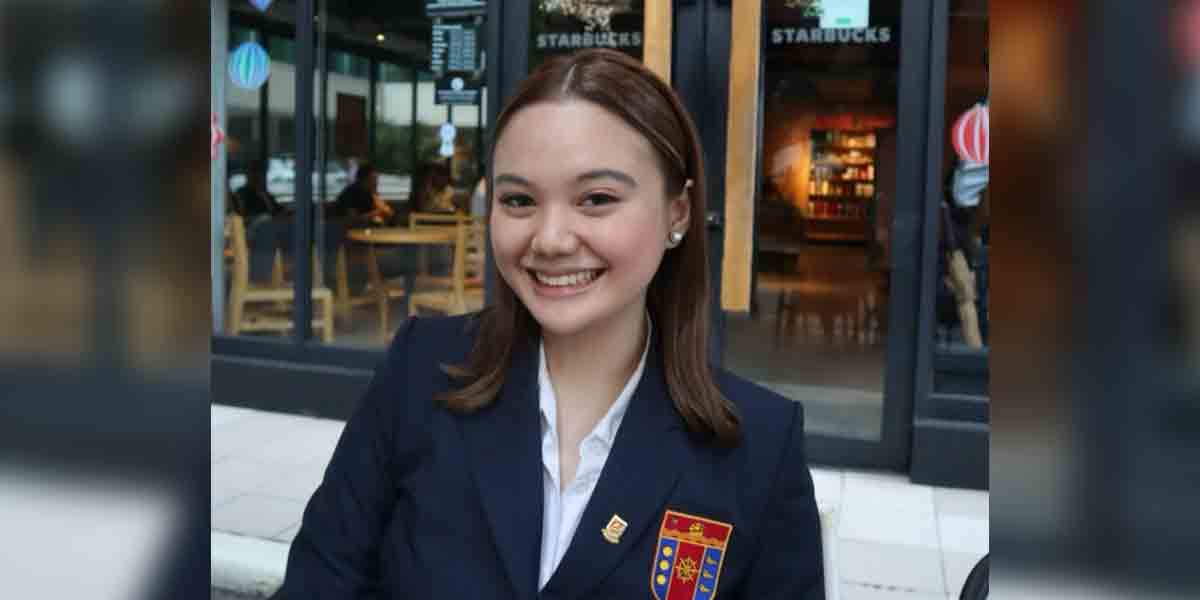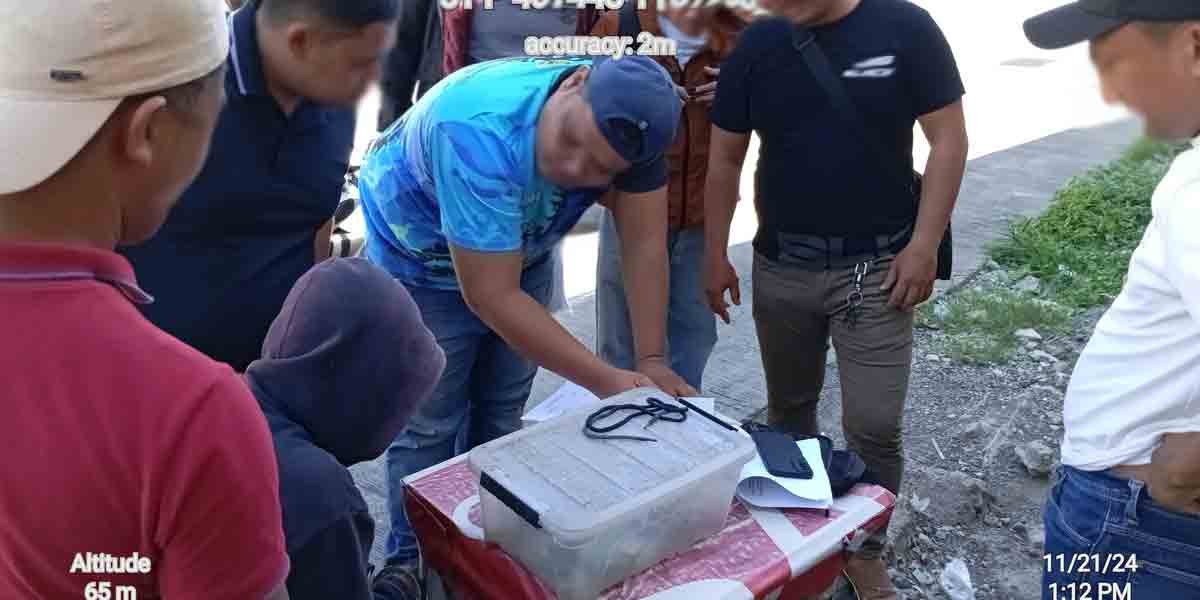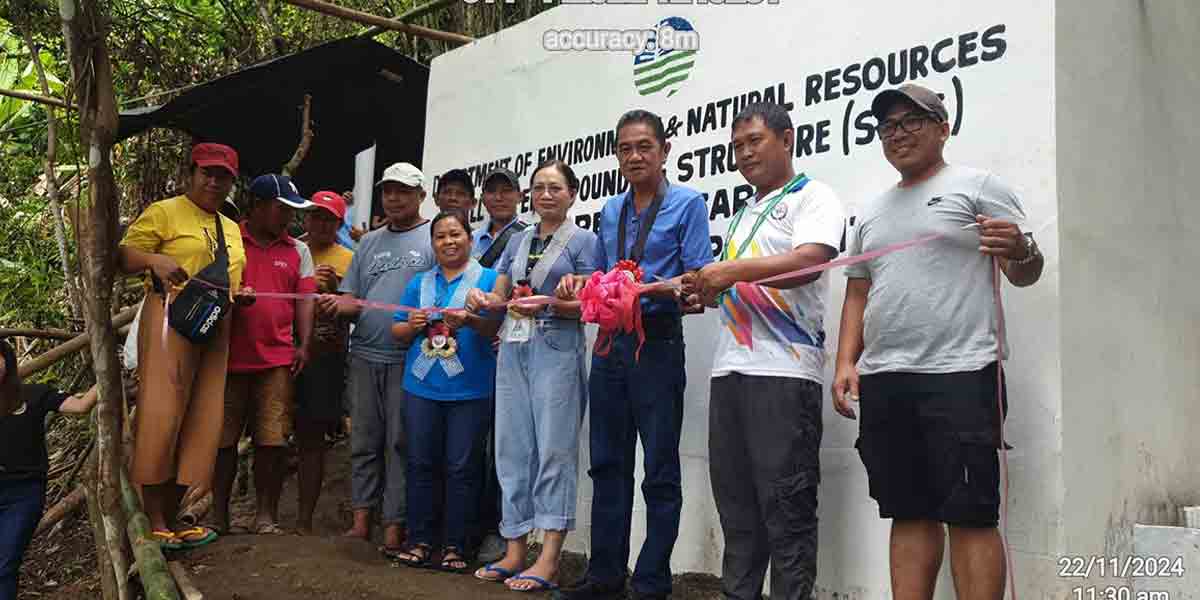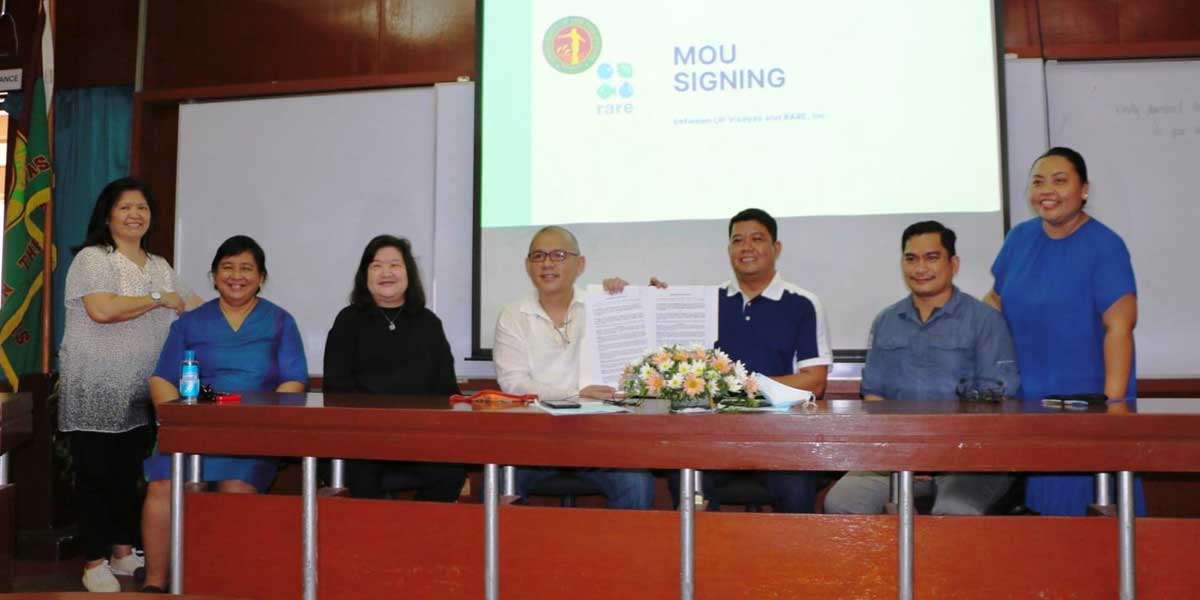
March 21, 2022, marked a momentous event when UP Visayas and Rare Philippines, Inc. signed a Memorandum of Understanding (MOU) to cooperate and collaborate in exploring ways to conceptualize, co-design, initiate, deliver, and pilot-test services, projects, programs, campaigns, studies, researches, proposals, and policy initiatives toward building resilient and sustainable coastal communities and coastal ecosystems, using resources in their respective organizations.
Both Rare Philippines, Inc. and UP Visayas will endeavor to achieve the objectives and deliverables within a period of up to 3 years.
Rare, Inc. is an international non-government organization specializing in behavior change for communities to reduce threats to natural resources, implements programs for coastal resource and fisheries management in the Philippines that helps improve the preferential rights of small-scale fishers in the country and the ecological and social resilience of these coastal communities, among others.
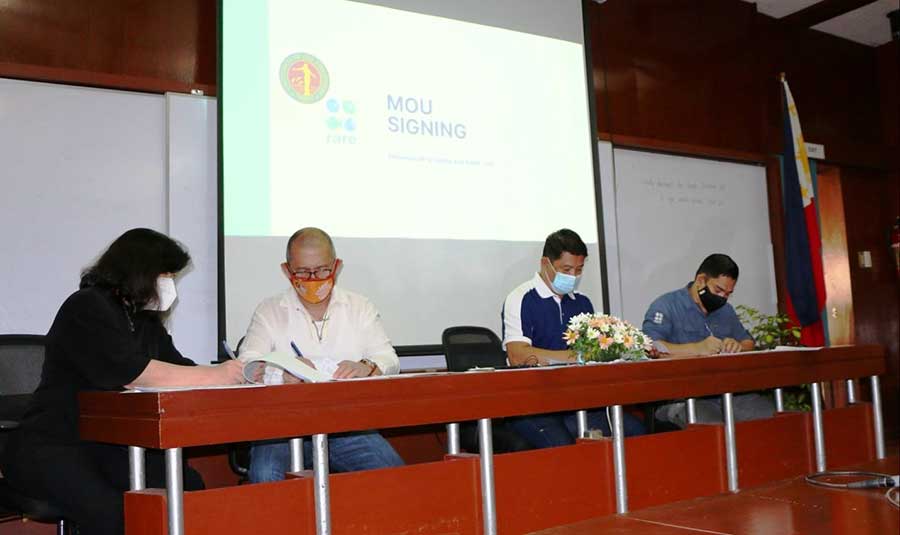
The activity was hosted by the Institute of Fisheries Policy and Development Studies (IFPDS) of the College of Fisheries and Ocean Sciences, which will serve as the focal unit to coordinate and work closely with Rare Philippines, Inc. regarding all concerns related to the MOU.
UP Visayas Chancellor Clement Camposano and Rare Philippines, Inc. Country-in-Charge Roquelito H. Mancao signed the agreement.
Dean Encarnacion Emilia S. Yap and Prof. Jessica Dator-Bercilla of CFOS and Mr. Fel Cesar Cadiz and Ms. Angeli Joyce P. Barafon of Rare witnessed the signing.
In his message, Chancellor Camposano emphasized the role and responsibility of the academe, such as UPV, in doing public service and engaging in transdisciplinarity since community engagement has multifaceted dimensions requiring multifaceted approaches.
He hopes that the agreement would encourage other units in the UPV to revisit their own practices to be more reflexive to see how they can find solutions to the problems with the recognition that they may also be part of the problem.
Mr. Mancao likewise gave importance to the spirit of transdisciplinarity, the need to enact leadership, and consider citizen science when implementing public service initiatives and community engagements. (Ms. Genna Serofia/CFOS-IFPDS)















